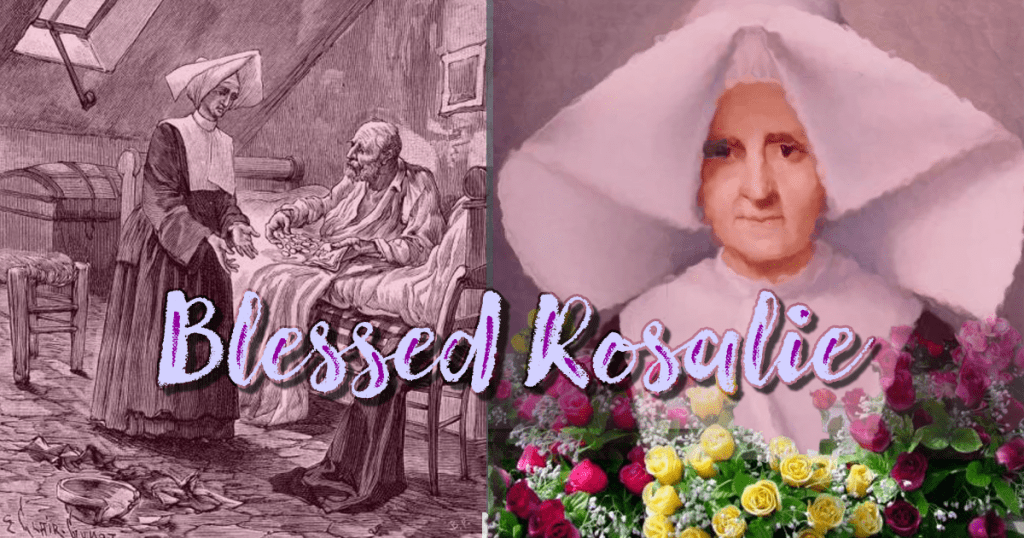 Continuing with our celebration this Wednesday of the anniversary of the beatification of Rosalie Rendu, D.C. on Nov. 9, 2003, here is another excerpt from the book by Sister Louise Sullivan, D.C.: “Sister Rosalie Rendu: A Daughter of Charity On Fire with Love for the Poor.”
Continuing with our celebration this Wednesday of the anniversary of the beatification of Rosalie Rendu, D.C. on Nov. 9, 2003, here is another excerpt from the book by Sister Louise Sullivan, D.C.: “Sister Rosalie Rendu: A Daughter of Charity On Fire with Love for the Poor.”
“There are certain elements that recur like a leitmotiv in all of [Sister Rosalie’s eulogies], including [Viscount Armand de] Melun’s biography. To name a few: the charismatic Sister Rosalie lived a largely hidden life; her earthly existence was marked by heroic action during revolutions and cholera epidemics, nonetheless, she fulfilled her vocation of servant of those who were poor as a humble Daughter of Charity who, united to God, performed the ordinary acts of a dedicated life extraordinarily well; she became a light shining in the darkness of grinding poverty; and, she loved and respected all her friends and collaborators, especially her “beloved poor.” Caubert, perhaps, best articulated the secret of her remarkable magnetism that called forth personal dedication in so many others, both rich and poor, when he wrote:
[Sister Rosalie] sought only to remain hidden and small and to conceal her merit, stepping back so that others might be in the limelight. Whatever she did, in her eyes, it was never adequate or done well enough. Someone said to her, “Mother, look at your influence. No one [is ever in the situation of] regretting having refused one of your requests. For you, to ask and to obtain are synonymous.” [She responded,] “What merit do I have in that? People are so good to me. All the gratitude goes to God and to those who deign to make use of me as an instrument.”*Melun’s close relationship with Sister Rosalie for so many years revealed the nature of her sanctity to him – the humble performance of the ordinary done extraordinarily well. As a Catholic intellectual, he most likely also knew that, if the Church was ever going to raise her to the altar as a saint, it would not be because of her heroism on the barricades or even during the cholera epidemics but because of her virtue in carrying out the simple acts of daily charity. Melun, of course, speaks of Sister Rosalie’s courage in dangerous situations. However, these episodes play only a small part in his biography which appeared in 13 editions, the final one coming out in 1929. Melun presents her as he knew her, as a “Daughter of Charity and only that.”
*Caubert, La Semaine religieuse, 126-127.







0 Comments